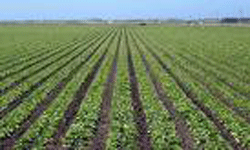
New rules implementing the EU Nitrate Directive for Northern Ireland take account of the unique predominance of grassland farming and water quality issues, says the Agricultural Industries Confederation's Fertiliser Sector, and represent the next step to ensure judicious use of plant nutrients.
The rules are different to Nitrate Vulnerable Zones in the rest of Great Britain. Nitrogen is not the main issue in N Ireland, instead phosphorus in freshwater lakes drives the management policies on-farm. The new Action Programme includes measures to achieve a sustainable phosphorus balance on farms by 2015 with more stringent rules to improve nutrient recovery from organic manures.
Throughout the negotiations, the Agricultural Industries Confederation, representing the fertiliser industry has worked with the Ulster Farmers Union to ensure that the new legislation achieves its environmental goals without threatening farm incomes by compromising essential use of nitrogen and phosphate use on Northern Ireland's farms.
"The legislation means the fertiliser guidelines, published as RB209, remain the basis for fertiliser use. However, farmers will face the challenge of making better use of nutrients supplied in manures and slurry," says Jane Salter, AIC Head of Environment Policy speaking on behalf of the Confederation's fertiliser members in Northern Ireland.
"The responsive attitude of farmers to fertiliser purchasing is already apparent as fertiliser phosphate use has virtually halved in the past 10 years while mineral nitrogen has reduced by nearly one third."
AIC fertiliser members and their FACTS-qualified advisers are keen to work with farmers in nutrient management planning. Practical guidance for managing the actual risk of P movement from farm soils to water can also be found in the fertilisers section of AIC's website (www.agindustries.org.uk ) under publications.
The new guidance shows that applying good practice for fertiliser P should be extended to slurry in the longer term interest of achieving a sustainable phosphate balance on farm, ie restricting slurry applications to fields with soils above the critical level of plant-available P required.
